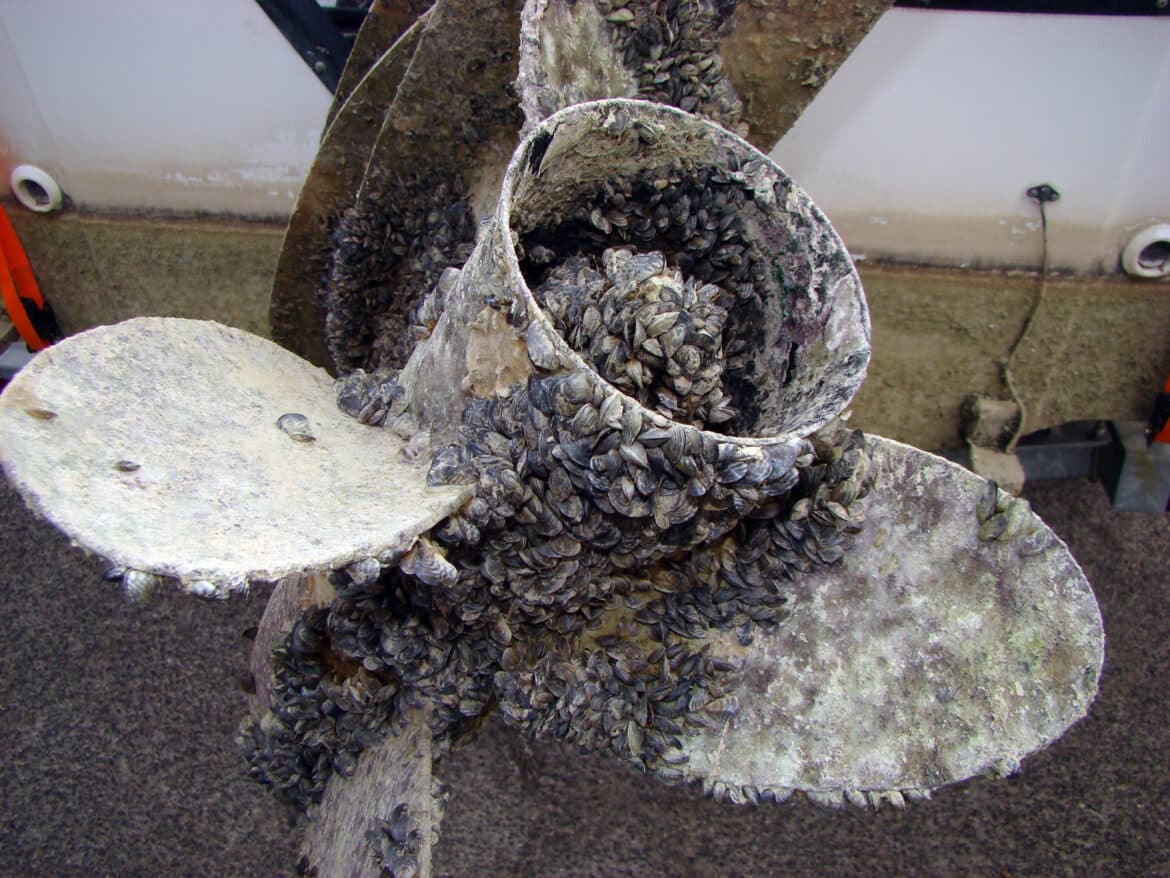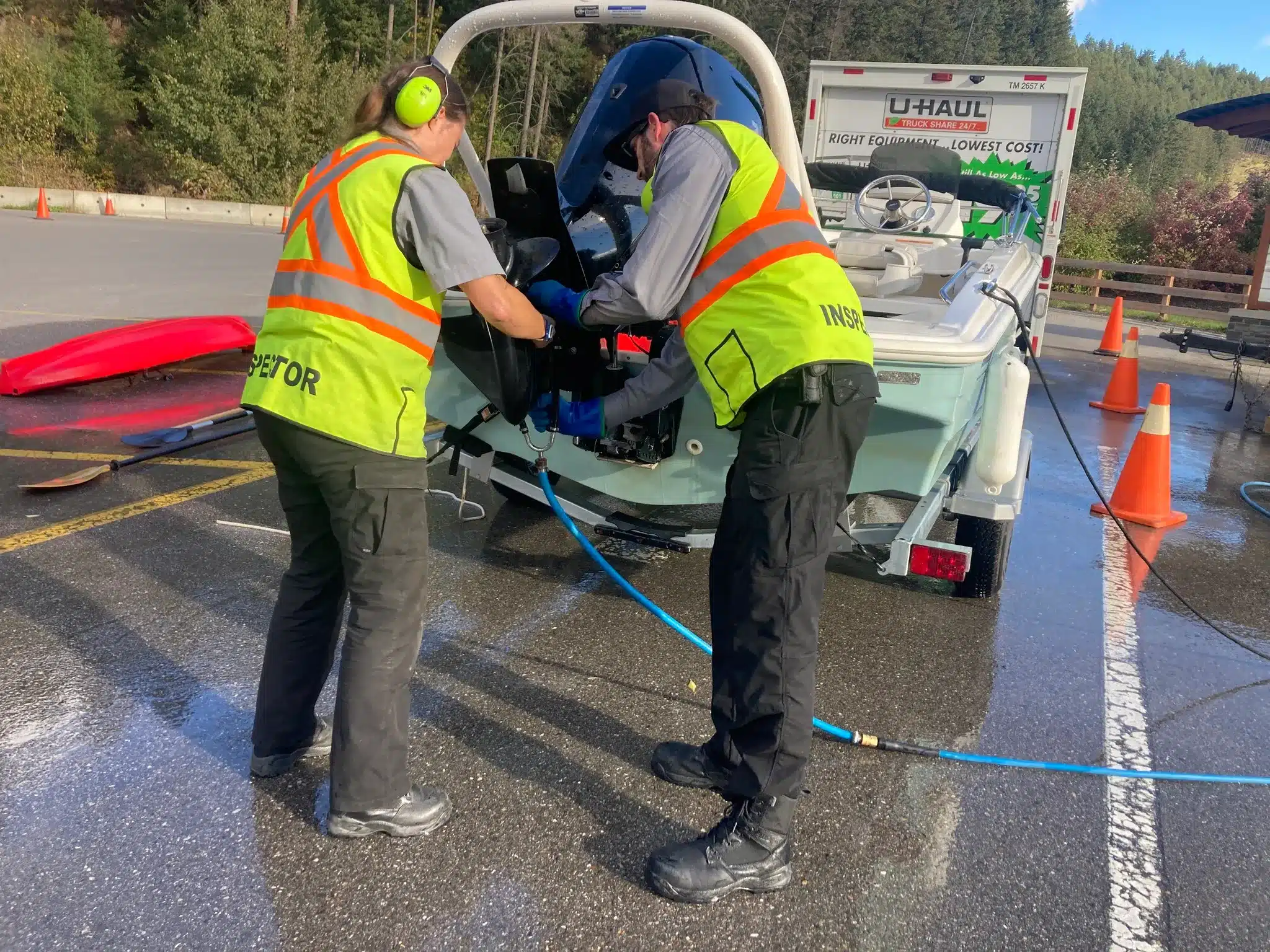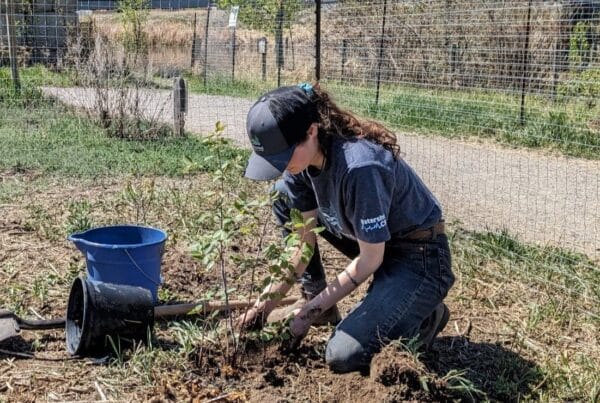By Lisa Houle | October 30, 2023
They’re out there – and they’re getting uncomfortably close. Last month, a boat from Ontario – infested with invasive mussels – was luckily stopped by the BC Conservation Officer Service at a check point in Golden, BC. Three months ago, mussels were detected on a barge from Ontario heading to BC. It was quarantined and decontaminated before it was allowed to touch BC waterways. So far aquatic invasive mussels have not established themselves in BC waters, but the threat is real, and dangerously close.

Invasive Quagga mussels were found in Idaho’s Snake River last month. The Snake River is part of the Columbia River Basin, a major river system in the USA which covers thousands of square kilometres, passes through seven states, and flows into BC waters. It’s estimated it will cost BC $129 million a year to manage, should invasive mussels make it here – destroying property and infrastructure, including beaches, boats, dams, and irrigation systems. This is a sad reality for the province of Manitoba, spending roughly $2 million per year on a treatment program to remove invasive Zebra mussels since they were detected in the Nelson River three years ago.
Preventing the spread of invasive mussels between water bodies is key, and it comes down to all of us adopting simple responsible habits. Play your part by practicing Clean Drain Dry – CLEAN off all plants, animals, and mud from your boat and gear, DRAIN all water from your boat and gear onto land, and DRY all parts of your boat and gear completely. And remember to report any sightings of suspected aquatic invasives.
“It is imperative that we all work together to prevent invasive mussels from entering BC. They have devastated waterways where they don’t naturally occur – clogging water systems, and decimating habitats for native fish and wildlife,” said Nick Wong, ISCBC Manager of Science and Research. “While we know the province of BC takes this threat seriously, we can all do more to ensure invasive mussels don’t establish in our highly valued freshwater ecosystems.”
Zebra and Quagga mussels are notorious for reproducing rapidly in new areas. They filter-feed on plankton, removing an important food source for native species. Unlike native freshwater mussels, the invasive ones anchor themselves to surfaces like docks and boats, amassing large colonies that can clog water pipes, causing millions of dollars in damage. When it comes to invasive mussels, keeping them out is key. Management once they establish is incredibly challenging and very expensive.

Now that invasive Quagga mussels have been confirmed in Idaho’s Snake River, the Pacific Northwest is on high alert. BC’s Ministry of Water, Land and Resource Stewardship is working closely with officials in the US as part of the Columbia River Basin Invasive Mussel Early Detection Rapid Response Plan. In BC, protocols have been adjusted at watercraft inspection stations to address boats coming from Idaho as high risk, and all Aquatic Invasive Species Inspectors are aware of this new detection.
“Invasives like Zebra and Quagga mussels are not only a BC problem, they’re also a Canadian and a global problem,” said Nick. “We love the diversity of BC, and early detection is critical to its protection.”
Any suspected transport, possession, sale, or release of invasive mussels should be reported immediately to the Conservation Officer Services – Report All Poachers and Polluters: 1-877-952-7277 (RAPP).
Report any sightings of aquatic invasive species and always remember to Clean Drain Dry!
Lisa is a Communications and Outreach Coordinator at ISCBC. She values a diverse environment and connecting with others about environmental protection. In her spare time Lisa enjoys spending time at the ocean and beach combing for sea glass. You can reach Lisa at lhoule@bcinvasives.ca
Share





